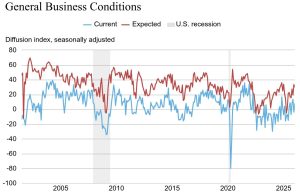U.S. Senator Charles Schumer (D–N.Y.) on Thursday announced that a California sterilization-product maker has “pledged regular weekly shipments” to Syracuse hospitals and expanded its manufacturing capacity.
The three Syracuse hospitals have had an “unexpected” shortage of a “critical” chemical they use to sterilize equipment for surgeries and other procedures, Schumer said in a news release.
Irvine, Calif.–based Advanced Sterilization Products (ASP) is the sole manufacturer of the product, the Sterrad biological indicator.
(Sponsored)

Assessing the Likely Tax Impacts of the 2024 Election
President-Elect Donald Trump will return to the White House in 2025 — a year that already was expected to see significant activity on the federal tax front. A projected unified
The Importance of Relationship Banking for Small Business Success
Small business owners wear many hats. Each day can bring on new challenges requiring valuable time and focus – especially in the competitive economic environment we live in today. The
A disruption in the supply chain led to the shortage at Crouse Hospital, St. Joseph’s Hospital Health Center, and Upstate University Hospital, Schumer’s office said.
The weekly shipments that ASP has pledged will address the short-term problem, the Democratic senator’s office said.
ASP also plans to expand its manufacturing capacity and is developing an alternative sterilization product to avoid future shortages.
This is “just what the doctor ordered” for Syracuse hospitals and surgery patients, who have “understandably” been worried about the shortage of this sterilization product, Schumer said in the news release.
“Over the long-term, I will press [ASP] to meet [its] commitment to expand capacity and develop an alternate sterilization product, so such shortages are not repeated,” Schumer said.
The assurances are “welcome news” for Upstate and the patients it serves, Dr. John McCabe, CEO of Upstate University Hospital, said in the Schumer news release.
McCabe believes the development prevents a “national biologic shortage from reoccurring.”
“We will continue to work with the Senator on this issue and applaud the commitment to a redundant product line, as well,” McCabe said.
Kathryn Ruscitto, president of St. Joseph’s Hospital Health Center, said in the release that she appreciates ASP’s recognition that a “consistent and predictable” supply of sterilization biologics is “critical” to the hospital.
Kimberly Boynton, CEO of Crouse Hospital, also called it “good news.”
“For a hospital like Crouse, the certainty from ASP means our contingency plans can be scaled back as this national shortage eases its impacts on Syracuse,” Boynton said.
The three Syracuse–area hospitals had a limited supply of the chemical, which would sustain the facilities for a few weeks or months, according to Schumer’s office.
At the same time, the hospitals were implementing contingency-sterilization plans for scheduled surgeries.
If the shortage continued, the Syracuse hospitals were concerned they might have to delay surgeries to ensure they would not entirely deplete their supply of the chemical, Schumer’s office said.
Contact Reinhardt at ereinhardt@cnybj.com




